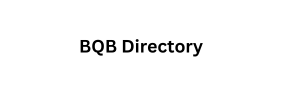Content manager – who is it?
A lot depends on how a company special database communicates with its audience. It was not for nothing that in Ancient Greece they said: “Speak so that I can see you.” Nowadays, the content manager bears full responsibility for the messages a brand sends to its potential clients and the information a company posts on the Internet.
This is a specialist whose responsibilities include developing, publishing, updating content, as well as collecting analytical data on its effectiveness. The difference in the interpretation of the functionality of a content manager is due to the fact that such specialists work in companies of different levels and scales. Accordingly, in small organizations, all issues have to be resolved independently, and in large ones, a team works on preparing content, where each employee has their own range of responsibilities.
The requirements for what a content manager does on job search sites can vary significantly: from filling the database with product descriptions to writing SEO texts and maintaining social media accounts.
What are the responsibilities of a content manager?
A content manager is a professional who plans, develops, distributes digital content, and then monitors the performance of this work in an effort to achieve the company’s goals. This role requires knowledge of how the online world functions in general, how competitors in a niche are represented, how they communicate on social networks, and much more. Such professionals know how to use the latest online services to optimize their work.
The main functions of a content manager are to come up with an idea, prepare a publication (and the format may not only be text) and distribute the content, focusing on a specific target audience. To set the right tone and reach the right customer base, the employee is required to have a deep understanding of brand values. A combination of creative and management skills is useful for this role.
Key areas of responsibility of a content manager
The requirements for a content manager meine externen dienste, immer cyber-sicher may vary depending on the niche in which he works and, in fact, the company. But the areas for which he is responsible remain unchanged. These include:
1. Content planning. All work begins with creating a content plan in accordance with the company’s strategy. At the same time, content management on different platforms is taken into account: website, blog, social media pages and messengers. Specialists take into account working with different formats and the need to adapt publications for different audiences on different platforms. At this stage, it is necessary to ensure a uniform tone and style of communication as much as possible.
2. Content creation. Often, the duties of a content manager include monitoring the work of designers, copywriters, SMM and SEO specialists. But if the company is small and the volume of work is also small, it is quite possible that the materials will have to be prepared independently. Work on preparing publications for a website requires. That the specialist ensures that the content meets the requirements of search algorithms and attracts the target audience.
What does a content manager do?
The day-to-day responsibilities of a content manager may vary depending on the industry and company they work for. Typically, they develop a plan, select topics and ideas, and then perform the following duties:
- independently or with the help of a team, prepare content;
- set tasks for contractors (for example, SMM specialists, PPC managers, and others) and monitor their implementation;
- update publications already posted on the site;
- look for other platforms for distributing content (online media, forums, popular social media accounts) and agree on publishing materials about the company;
- interact with customers in comments, respond to reviews.
All these works are aimed at forming a positive brand reputation.
The website content manager necessarily aero leads carries out monitoring and evaluates the efficiency of the work. To do this, he collects statistics, pays attention to the number of views or clicks, studies Google Analytics data. His work at this stage is displayed in reports and is transferred for analysis to marketers so that they can make changes to the overall strategy if necessary.






